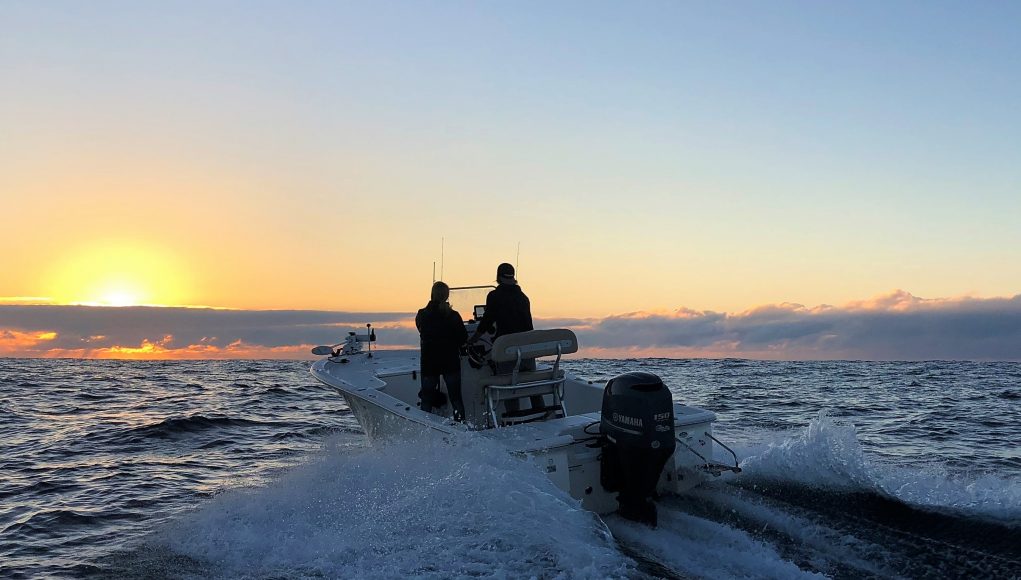Until I worked on Creek to Coast, I hadn’t spent much time on a fishing boat… and I still remember my first shoot offshore from Double Island Point. By the end of the day, I was dehydrated, needed to pee, felt sick, my face was dry and burned, and I was pretty embarrassed at vomiting in front of my colleagues as they worked around me all morning.
Today–roughly 18 months later–offshore shoots are a pleasure… but I have learned a couple of things along the way. Some of them will be obvious to those who have spent years on a boat, but for everyone else, here’s what the experienced might not think to tell you.
There’s probably not going to be a toilet
Be prepared for the fact that there won’t be a toilet so go just before you hop on. And if you’re busting, you’re probably going to have to pee over the side of the boat. If it helps, no one is likely going to want to see or hear you weeing, so if they can turn around and block their ears, it should be reasonably painless for all. For the ladies, this will be even trickier, but there are urinary products available from BCF, like this one.
Protect your face
Let’s face it (see what I did there?) skin cancer prevention is the most obvious and important reason to protect your skin. But many of us also spend a lot on face products. And let me tell you, a single morning on a boat without face protection can undo months of a good skincare routine. The sun is doubly as harsh as it reflects off the water, so use sunscreen, apply it regularly, and shield your face with a scarf to protect it from not only the sun, but also wind burn and salt spray.
Seasickness
If you haven’t spent much time on the ocean, there’s every possibility you’re going to get seasick. And my goodness: trust me when I say it’s horrible. At the same time, they say it’s all in the mind. Either way, take sea sickness medication with you just in case… and I’m not talking the natural stuff. Over the counter travel sickness meds usually do the trick, but you can visit your doctor if you need something stronger.
Keep up the fluids
After my first time offshore, I was convinced I could outsmart the body and not drink water so I wouldn’t have to pee on board. It was a silly mistake on my part. Being in the sun, of course you have to keep your fluids up. The body also uses a lot of energy to counterbalance the rocking of an offshore fishing boat, which is another reason to drink plenty of water.
First Aid
On a fishing boat, there are many things that can cause serious damage to the human body. From the gear–think hooks and knives–to the actual fish you bring aboard, a first aid kit will be your best friend if you find yourself on the wrong end (or anywhere near) an angry Spanish Mackerel.
Written by Bettina Maniatis











